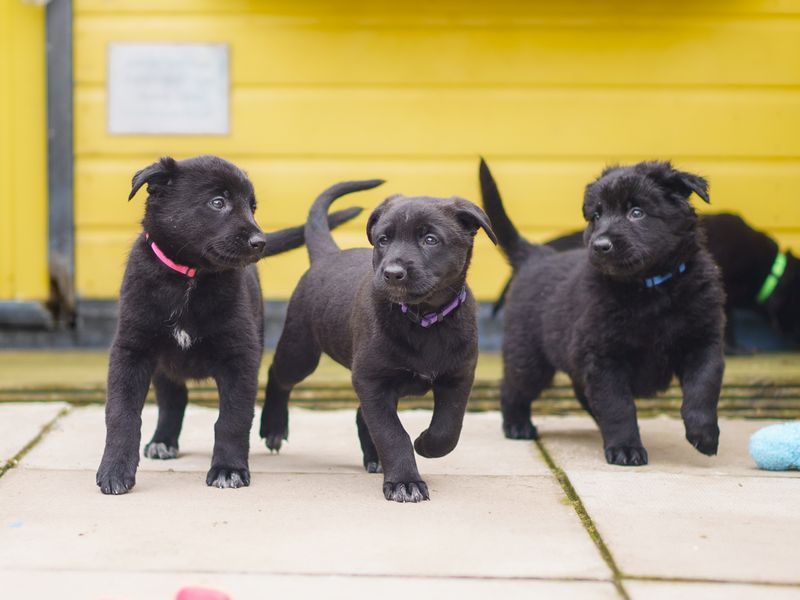Finding a good, responsible breeder
Once you’ve decided on the right breed for your household, you should find a responsible breeder to buy from.

Finding a breeder who breeds healthy puppies is such an important step to get right, and the right breeder is worth the wait. Buying from someone who responsibly breeds healthy puppies will increase your chances of having a happy, healthy dog for the duration of their life.
How to find a responsible breeder
Start by asking friends and family, training clubs and your local vet for recommendations. It’s important to know what to look out for when researching breeders so you know how to recognise a responsible breeder and notice any potential red flags that could mean a puppy has not been bred in a welfare positive environment.
A responsible breeder will:
- be happy to speak to you on the phone, answer questions about the breed, and be keen to keep in touch with you.
- be keen to get to know you to ensure you’ll provide a suitable home for the puppy. This may be about your lifestyle and the type of home their puppy is going to.
- only breed from healthy dogs with no behaviour or health issues, and will be happy to provide health certification.
- encourage you to visit the puppies with their mother, and will never sell a puppy younger than 8 weeks old.
- ensure a bitch has only one litter within 12 months, four litters over their lifetime and none after having a caesarean section.
- ensure the mother and puppies have regular vet checks, including flea and worming treatments and vaccinations.
- ensure each puppy is microchipped and registered on a Government compliant database.
- ensure their dogs have a good quality of life, with an appropriate diet, a clean, warm environment and outdoor space.
- have started to socialise the puppy at home.
- issue a puppy pack, which includes food, paperwork and advice on progressing socialisation.
- offer to take the puppy back, should your circumstances change throughout the dog's lifetime.
A responsible breeder may also have a waiting list for their puppies. Remember, a responsibly bred puppy is worth the wait!
How to avoid a puppy farmer or scammer
Understanding how to spot an irresponsible breeder is incredibly important, but unless the dog is unclean or looks unwell, it can be tricky to spot a puppy farmer or rogue breeder. They will often go above and beyond to trick unknowing dog lovers, but there are things to look out for:
- there are photos and descriptions that can be seen in multiple adverts
- they have several breeds available to buy at one time
- they have little knowledge of the breed they are selling
- they are reluctant to let you visit the puppy with their mother in the place that they were bred
- they suggest meeting somewhere other than the puppies’ home or place of birth
- they are advertising the puppies as having passports
- they are pressuring you to send a deposit before you've been to visit
- they don’t let you see the mother and pups together, and use an excuse as to why she’s not present
- they don’t let you visit more than once.
Remember: never buy a dog from a pet shop or commercial third-party sellers. It is illegal to sell a puppy under eight weeks old away from the location where it has been bred.
If you have noticed any of these red flags and are worried a breeder might be a scammer or puppy farmer, don’t forget that you can walk away at any time. You can also report them to Trading Standards.
Puppy smuggling
We're working hard to end the vile puppy smuggling trade for good.
Use our puppy buying checklist
Download and print our handy checklist to make sure you’re considering everything you need to when it comes to finding a responsible breeder and buying a puppy.
Other ways of getting a dog
Buying a puppy is, of course, not the only way of bringing a new four-legged friend into your life. You can adopt a puppy from one of our many rehoming centres, you may even find that an older, wiser, more experienced dog suits your lifestyle better. Meet the dogs in our care and find your perfect match.



